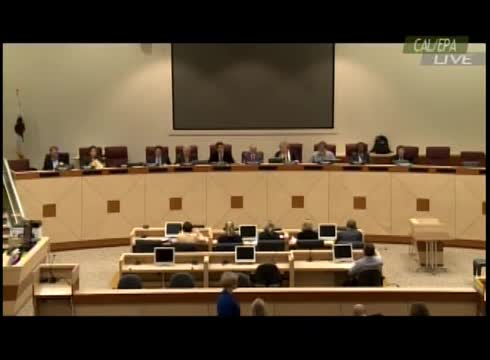Commission forms road‑usage charge technical advisory committee under SB 1077

Summary
The commission unanimously approved staff’s recommendation to begin forming a 15‑member technical advisory committee to study road‑usage charge alternatives, as directed by Senate Bill 1077, with appointments expected by the December meeting.
The California Transportation Commission on Nov. 12 instructed staff to begin contacting stakeholders to form a 15‑member technical advisory committee to study alternatives to the gasoline excise tax and design a pilot road‑usage charge, as required by Senate Bill 1077.
Staff told the commission SB 1077 (authored by Sen. Mark DeSaulnier) was signed by the governor Sept. 29, 2014, and directs the commission chair, in consultation with the secretary of the California State Transportation Agency, to create the advisory committee. Staff outlined the statutory timetable: the advisory committee must inform design work that will support a pilot program to be implemented by Jan. 1, 2017, and a report of findings due to the transportation agency by June 30, 2018. To meet those statutory deadlines, staff said the advisory committee should be established by Jan. 1, 2015 and anticipated formal appointments at the commission’s Dec. 2014 meeting.
Staff described membership guidance in the statute and told commissioners the chair should consider representatives from eight areas: the telecommunications industry; highway user groups; the data‑security and privacy industry; privacy‑rights advocacy organizations; regional transportation agencies; national research and policy bodies; members of the Legislature; and other stakeholders as the chair determines. The statute also specifically requires consultation with highway users and stakeholders including vehicle users, vehicle manufacturers and fuel distributors.
Kiana Buss, speaking on behalf of the California State Association of Counties (CSAC) and the League of California Cities, said local elected officials and county/city transportation leaders understand the funding pressures facing local streets and roads and “stand ready to work with our regional partners to identify the right mix of supervisors and city council members to achieve some geographic balance and, diversity of, different perspectives to help inform, the effort.”
Commissioner Assemi moved to accept staff’s recommendation and Vice Chair Dunn seconded; the motion passed unanimously. Staff will begin contacting identified organizations to solicit participation for the advisory committee and expects to present formal nominations at the December commission meeting.

